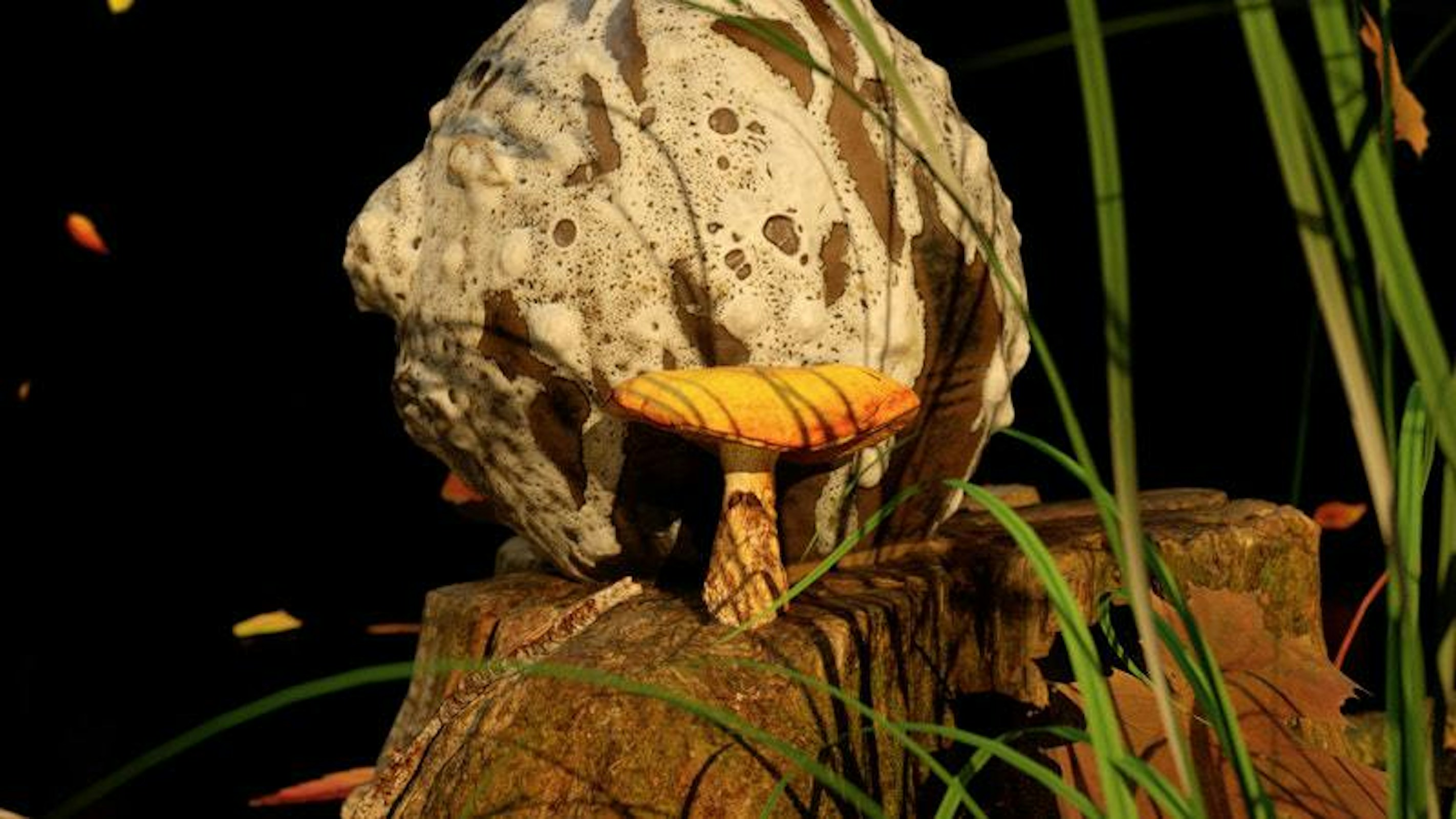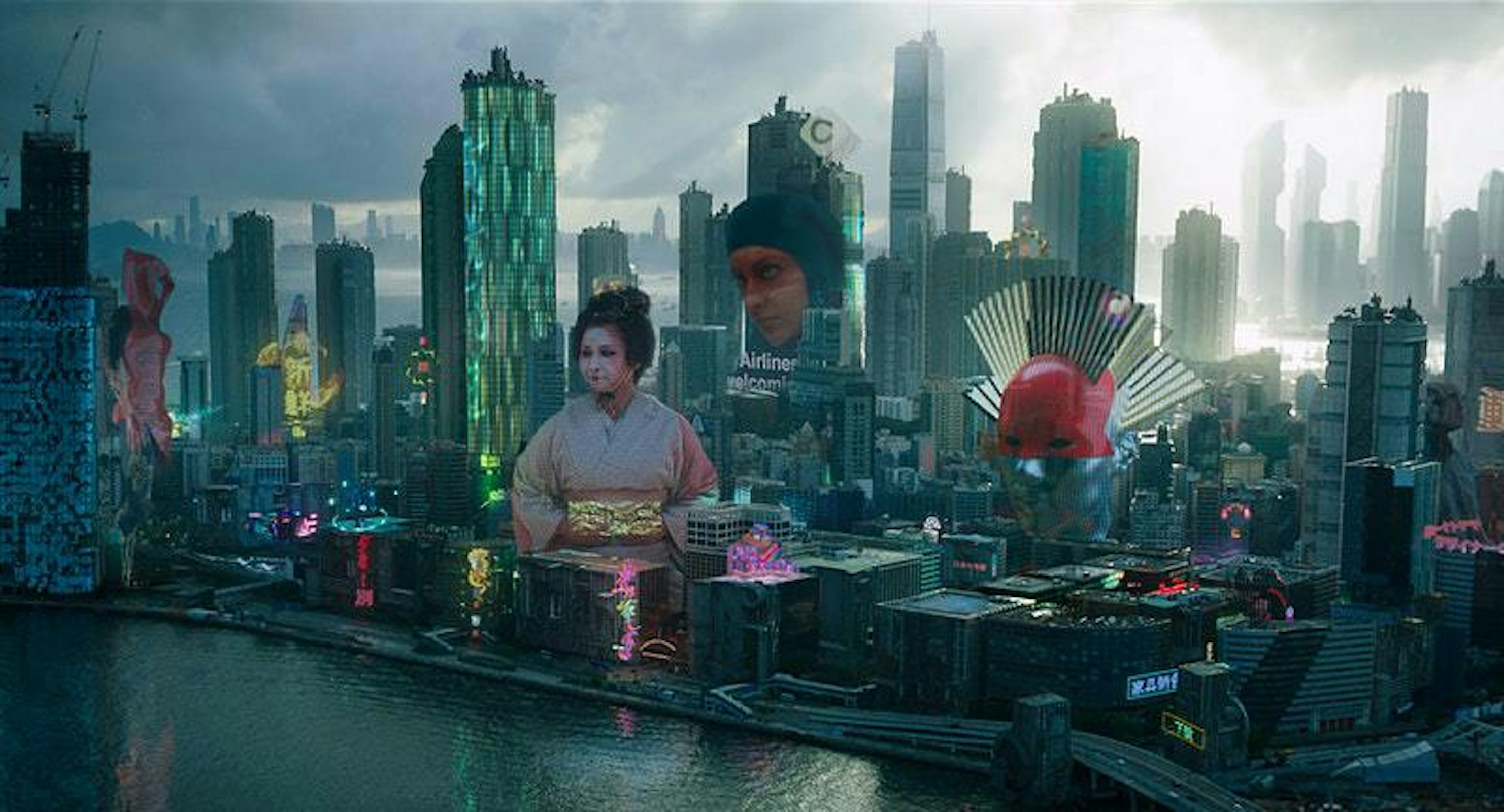Be open to career curveballs: VFX producer at Outpost, Fay Hancocks
Fay Hancocks didn’t enter into her career with any “grand ambitions or preconceptions”. In fact, her early aspirations were to become a dolphin trainer or to “make Toy Story”. But the latter isn’t altogether dissimilar to her current role as a VFX producer at Outpost. Based in Bournemouth, she works with the production team to help realise VFX projects for ads, films and television – balancing budgets and schedules, and supporting her team along the way. After graduating from Bournemouth’s computer visualisation and animation course at Bournemouth, Fay decided to turn her hand to production. Learning the ropes at MPC in London and DNEG in Vancouver, she worked on projects including Harry Potter and the Deathly Hallows and rides at the Wizarding World of Harry Potter in Orlando. She tells us what it takes to bring about blockbuster work, and why it’s important to be open to “career curveballs”.

Fay Hancocks
Job Title
VFX Producer, Outpost VFX (February 2018–present)
Based
Bournemouth
Previous Employment
DNEG [Double Negative] in London and Vancouver: from Coordinator to Line Producer, to Company Schedule Manager, to Producer (2010–2017)
MPC [The Moving Picture Company] London (2007–2010)
Education
BA Computer Animation and Visualisation, Bournemouth (2005–2008)
Website
Day-to-Day
How would you describe your job?
As part of the production team I manage the acquisition, budget and big-picture schedules for some of the projects at Outpost. The producer and the VFX supervisor (the creative supervisor for a project) will agree on a budget and scope of work with the client and break this down into key dates and goals.
Producers will then work with line producers and coordinators to implement this as a day-to-day schedule of tasks. Supervisors and artists create the imagery, aided by editorial, R&D and tech support teams to deliver the highest quality work on time and on budget. Work is presented to clients by the producer and supervisor, feedback is relayed to the teams and the cycle of scheduling, reviewing and presenting iterations to achieve the client’s vision.
What does a typical working day look like?
The majority of my work takes place in the studio, a fairly typical office environment except for the massive render farm and cinema-style dailies suite. Outpost is possibly unique in the VFX industry in that it offers core working hours of 9am to 5pm, with none of the associated shaming that can sometimes come with leaving on time if your job is done! Obviously during “crunch” times these hours can stretch, sometimes into the wee hours of the morning or the weekend, but this is pretty unusual and only when absolutely necessary.
“I chose Bournemouth over London, primarily for the reputation of Outpost.”
My time spent on various tasks varies depending on what stage of a project we are in and what needs attention. Working in Bournemouth allows me a 10-minute walking commute, and the variance of normal-days and crunch-days is actually my ideal balance! I’d love to say I have a morning routine of yoga, smoothies and life-drawing, but in reality I flail out of bed into the shower, throw on whatever clothes are clean and leg it out of the door.
What do you like about working in Bournemouth?
After relocating from Vancouver I chose Bournemouth over London, primarily for the reputation of Outpost. It also has the benefits of a shorter commute, affordable rent and excellent train links to London should we need to visit clients. I'm told it's a major hub for creative companies down here, with a bunch of creative agencies, digital marketing businesses and web agencies.
How did you land your current job?
I got put forward for the role by one of my previous Bournemouth University lecturers – I believe my decade of previous experience in similar roles, and my personal ethos of production needing to actively engage in creating a positive and sustainable work environment, lined up with Outpost’s needs to win me the role.
What are the most and least enjoyable aspects of your job?
I actually love the final few weeks of a project; the hours can get longer and the problems can get tougher, but the sense of camaraderie and joint-achievement makes it extremely enjoyable and thrilling. The least enjoyable for me are the very earliest stages when the scope of work is not confirmed, and we are confronted with all of the unique technical challenges that inevitably crop up with every project. It can seem daunting every single time, but it always gets done in the end.
What skills are essential to your job?
Communication, accuracy, negotiation, foresight, and humility. Learning to draw on the experience of people around you, rather than feeling like you need to have all the answers, creates a better sense of teamwork and results in a much more accurate response.
What tools do you use most for your work?
Microsoft Office Suite, Shotgun, and a lot of post-its

How I Got Here
What did you want to be growing up?
I wanted to ‘make Toy Story’…or be a dolphin trainer.
What influence has your upbringing had on your work?
My parents were extremely supportive, even when I wanted to pursue a group of subjects (ICT, Art, Maths) that teachers warned were a nonsensical combination. They have always given me the freedom and encouragement to choose my own path, but with an emphasis on trying your absolute hardest and not being a dick.
How (if at all) is the subject you studied useful to your current role?
My degree in computer animation is extremely useful in my role, as it gave me a very basic (if now outdated) understanding of the VFX process, as well highlighting the significance of teamwork. After graduating, I realised I enjoyed the times where my ability to plan and structure group projects facilitated others to produce some of their best work, so did my own research on how this took form in the VFX industry.
“After graduating, I realised I enjoyed planning and structuring projects to help others to produce their best work.”
What were your first jobs?
I was very fortunate in that my degree allowed me to go straight into a coordinator position (without running or internships), in the research and development department at MPC London.
What in particular helped you the most at the start of your career?
Hands down, Matt Hanger (my very first manager at MPC). He pinpointed anything that I was nervous or under-confident in, and pushed me specifically to improve those aspects, whilst giving me space and responsibility to shine and get myself noticed by other departments.
Was there a particular project you worked on that helped your development?
I have treated my career as sort of meandering journey; I believe there are lessons to be learned in every step, and that everything contributes to development in some way. That said, working as the company schedule manager at DNEG was hugely eye-opening, as I was taken out of my single-project bubble and was instead responsible for the flow and resourcing of all projects in the office. It made me aware of the needs of a business as a whole, and the necessity of being as flexible and helpful as possible when going back onto a single project – it doesn’t matter if it’s ‘your’ show or not; if one fails, we all fail.

What skills have you learnt along the way?
The core skills of production seem to have remained fairly stable over the years, but the processes and technologies can change almost on a per-project basis. It would be impossible to list all of the skills from every step of production, as I’ve been given the opportunity to learn so much from how to send work to clients, how to run dailies sessions (where we review artist submissions), to scheduling work, creating budgets, and even coding in VBA [Visual Basics for Applications] and Python.
What’s been your biggest challenge?
The biggest challenge has been learning when to say yes and when to say no. It’s obviously important to be as positive, accommodating and creative in your problem solving as possible, and save refusals for when all options have been exhausted. But it’s also important to be able to say “no” when it’s necessary, and in a diplomatic way that offers reasonable compromise.
Is your job what you thought it would be?
I didn’t enter into my career with any grand ambitions or preconceptions. There have been surprises both good and bad, but I think the biggest surprise is the amount of pride (both personal and on behalf of the team) I experience every time I see our work on a screen. I assumed you would become blasé about it, but the delight I get every Christmas when Harry Potter comes on the TV never gets old.
Thinking Ahead
What would you like to do next?
Being fluid and open to any career curveballs has always given me my greatest job satisfaction, so I’m not sure – head of production somewhere? Go client-side? Start my own facility? Who knows!
Could you do this job forever?
With the work-life balance that a facility like Outpost strives to offer, absolutely.
What do you feel is the natural career progression for someone in your current position?
At a producer-level, progression could branch to executive production, facility management, or client-based roles. Personally, I feel I have a lot more to learn in my current role before I would feel the need to advance anywhere.
Words of Wisdom
What advice would you give to a young creative wanting to do the same kind of work?
Try not to bow to the huge societal pressure of ‘getting on your path.’ If you know what you want to do, absolutely go out there and get your dream, but if you don’t, that is perfectly fine. Don’t be afraid to admit that what you’ve chosen isn’t what you want any more.
Talking specifically about VFX Production, make an effort to learn how VFX are created – you don’t have to do a whole Uni degree like I did, but there are plenty of online resources to educate yourself and make sure you can have meaningful conversations with artists, supervisors and producers (and during job interviews). Jeffrey Dates has put out a fantastic VFX 101 document, which you can read here as a starting point here.
Interview by Marianne Hanoun
Mention Fay Hancocks
Mention Outpost VFX
Mention DNEG
Mention Moving Picture Company (MPC)







